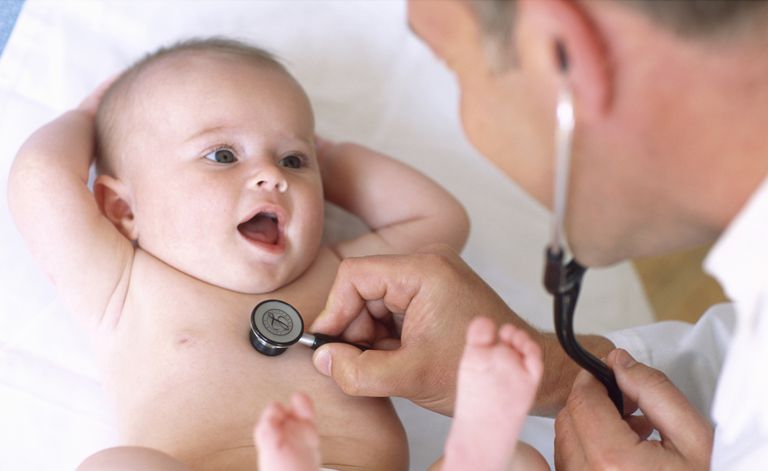Motherhood is what every woman dreams for! The moment you see the blinking eyes and the pinkish skin of your just born baby after entering this world will take you to a different world of happiness. Giving birth to a healthy baby is what every woman thinks of. You will never run through your minds about the tests that need to be carried out for a healthy life. But, due to some genetic risks running in your family or even without any family history of any disorders, it is necessary to check for any complications for good health and proper developments in your baby. So, to avoid any future risks, the doctors will carry out a few mandatory health check-ups and several tests to examine the health before leaving the hospital.
Early detection of any disorders can get corrected with the right treatment at the right time. Narrowing down the defects can give your baby a road for a healthy life journey. If your paediatrician prescribes any medicine, order your medicine through any trusted online pharmacy store and avail free home delivery.
Check out a few mandatory health check-ups that need to be carried out in order to protect the health of your little one!
APGAR test:
Soon after the birth and again after 5 minutes interval your paediatrician will check for five factors namely colour, muscle tone, heart rate, breathing and reflex response. This will help your doctor to check whether any medical attention is required immediately. Most of the new-borns will pass this test but, rarely infants may require oxygen or need to rub the skin to clear their airways for proper breathing. After which, they are checked for
- Temperature
- Weight and
- Circumference of the head. The details are entered in the development chart to follow his progress in future.
Before you leave out of the hospital, your paediatrician will check your baby from head to toe for any complications.
Head:
Birth through the birth canal can sometimes lead to the squashing of your baby’s head leaving soft spots. Sometimes, the use of instrumental devices like forceps or ventouse can leave bruises on the child’s head. A thorough checkup is needed to be carried out by the paediatrician.
Ears and eyes:
The hearing test is carried out to check for any ear problems.
To rule out any eye defects, the doctor will shine a light on the eyes and check for red reflux. For the presence of any cataract in your baby, red reflux shows positive.
Skin:
Most babies in the first week of their life can develop yellow tinge on their skin causing increased build-up of bile pigments leading to condition called jaundice. Apart from this doctor will check for
- Birthmarks
- Strawberry marks
- Red or purple V-shaped marks (stroke marks)
- Mongolian spots.
Mouth:
The Doctor will run through his finger inside your infant’s mouth to check for sucking reflex and cleft palate as cleft palate requires immediate medical attention. The tongue is also examined for tongue-tie as its presence can cause your baby to stop moving their tongue freely.
Heart:
Doctors use the stethoscope to hear any extra murmurs of your baby. A few times, there might be some faster heartbeats, but slowly they settle down to the normal pattern.
Lungs:
The Paediatrician will check for your baby’s breathing pattern, lung function and chest sound. If anything is really worrying, your doctor will recommend for immediate medical treatment.
Hands and feet:
- Fingers and toes are counted for any defects.
- Palms are checked for the presence of two palmar creases. The absence of any one crease can be linked to Down syndrome.
- Feet and ankles are checked for club foot or Talipes.
Spine:
Your baby’s spine is assessed for a sacral dimple at the base of the spine. The presence of sacral dimple can affect nerves and can also cause cold feet and leg weakness to name a few. Book an appointment with paediatric orthopaedic and seek his advice. Browse through your prescription drugs online from the best online medicine store in India and get it delivered right to your doorstep.
Hips:
Infants hip are checked for the stability of hip joints. If any defects are noticed, further investigation needs to be carried out to rule out the disease.
Reflexes:
Your baby’s healthcare provider will check reflexes to determine whether brain and nervous system function well. Moro reflex is the commonly tested reflexes in new-born babies. Moro reflex is seen in babies till 3 to 4 months after the birth. The baby will spread out the arms, pull out the arms and occasionally may cry a little.
If the doctors have any concern regarding your baby’s health, they may recommend further tests and analysis. Sometimes, a blood test may be carried out as an investigation procedure to rule out genetic disorders. It’s always a good practice to detect disease at an early stage and to start treatments immediately for healthy well-being.
Lakshmi Krishnanunni: She holds M.Sc., M.Phil in Biochemistry and has strong proficiency in the areas of Immunology, Biomolecules, Cell biology, and Molecular biology to name a few. She has more than 10 years of Research experience in the field of medicinal plants research and Nanotechnology. Her expertise in research has greatly assisted in writing medical, health and research articles. As a writer, she aims to provide research-based information to the readers in more detail. In her spare time, she loves cooking and experiments with various cuisines, painting, travelling, listening to music and gardening.

